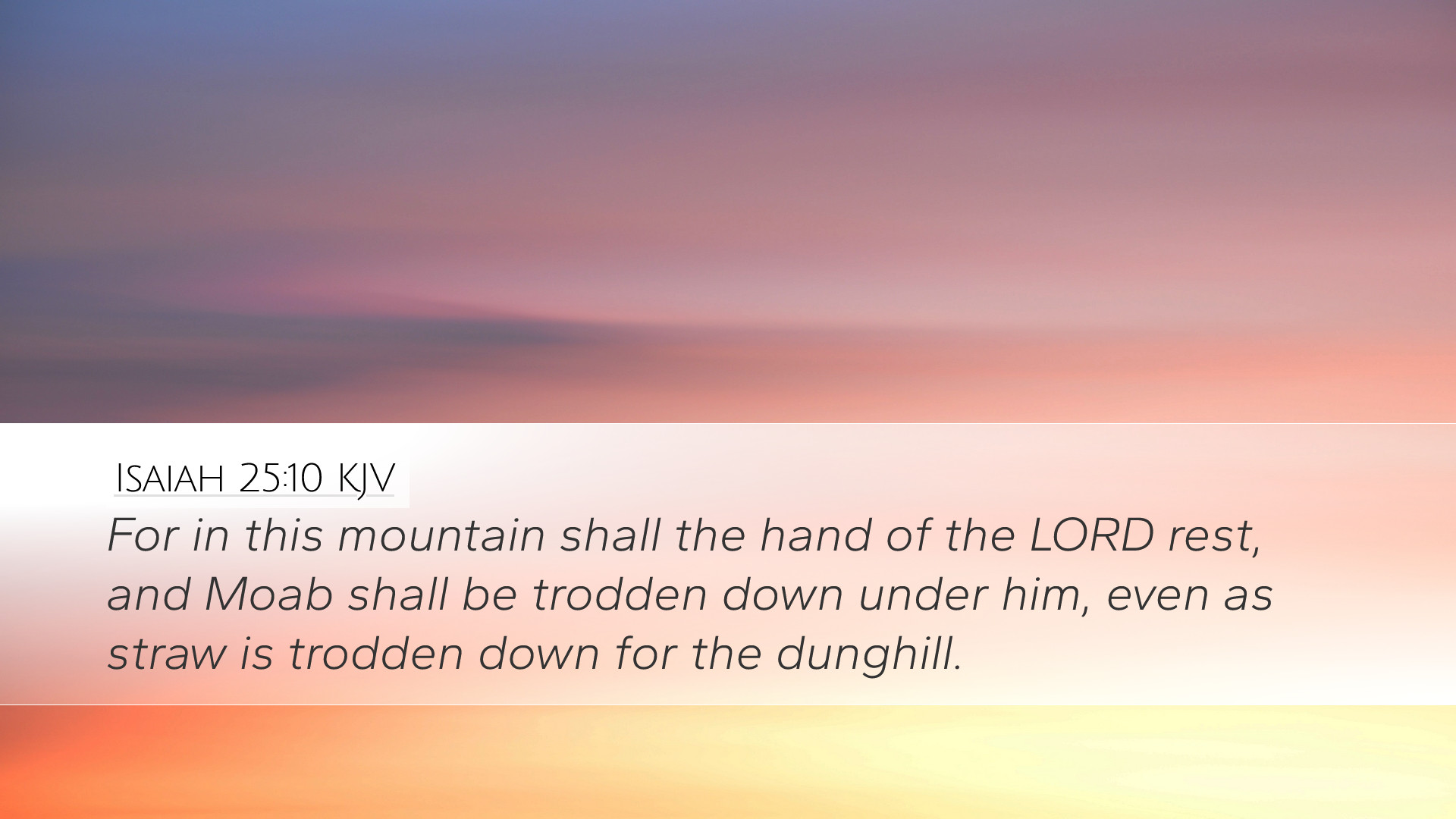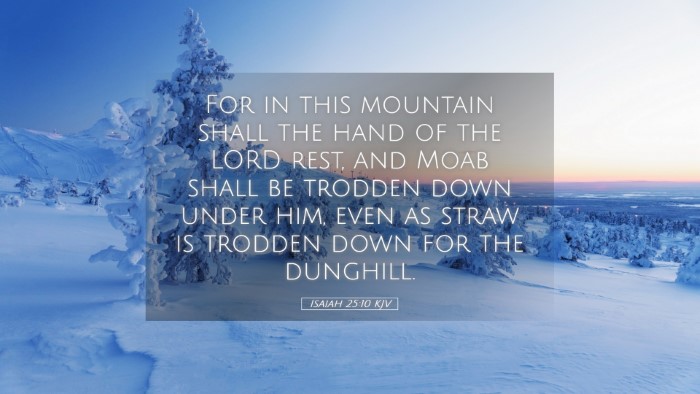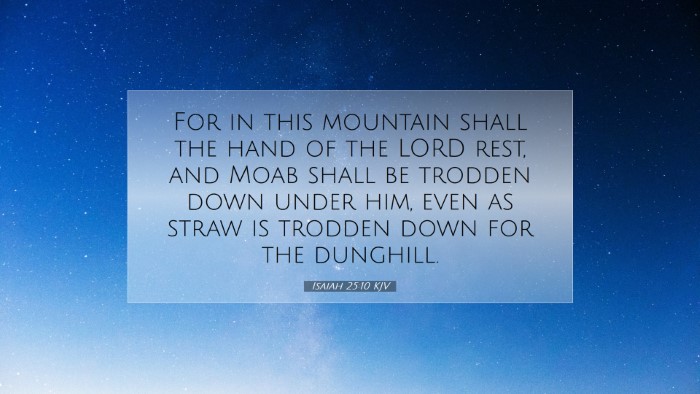Commentary on Isaiah 25:10
Verse: "For in this mountain shall the hand of the LORD rest, and Moab shall be trodden down under him, even as straw is trodden down for the dunghill."
Introduction
Isaiah 25:10 offers a vivid image of divine sovereignty and judgment, particularly concerning Moab, a nation often at odds with Israel. This verse encapsulates themes of God's protection over His people and the eventual downfall of their enemies. Drawing insights from esteemed public domain commentaries such as those by Matthew Henry, Albert Barnes, and Adam Clarke, we can understand the profound theological implications of this scripture.
Theological Themes
-
Divine Sovereignty:
Isaiah emphasizes God's absolute power to oversee and influence the affairs of nations. The imagery of God resting His hand upon the mountain signifies His authority and the establishment of His kingdom. Albert Barnes notes that this verse symbolizes God's protective care over Zion, suggesting that He exerts His influence to uphold and strengthen His people.
-
Judgment of Nations:
The pronouncement of judgment on Moab serves as a reminder of God's justice. Moab's downfall is likened to straw being trampled in a dunghill, a vivid depiction of total subjugation. Matthew Henry explains that this reflects the fate of all who oppose God's purposes. The imagery reinforces the transient power of earthly kingdoms compared to the enduring reign of God.
-
Protection of God’s People:
For the people of Israel, the verse brings comfort and assurance. Adam Clarke notes that God’s hand resting on the mountain implies safety and refuge for believers amid turmoil. The stark contrast between God’s people's security and the fate of their adversaries embodies the hope found in divine deliverance.
Verse Analysis
The phrase "in this mountain" refers to Mount Zion, representing not just a geographical location but the spiritual center of God's covenant people. It is here that God’s presence dwells, and where His promises are fulfilled. This reference underscores the idea that God's protection and favor are firmly planted within the community of faith.
Moab as an Antagonist
Moab, historically known for its antagonism toward Israel, stands as a metaphor for all nations that oppose or persecute God's chosen people. The description of Moab being "trodden down" serves to highlight the inevitable downfall of those who stand in opposition to God's will. Matthew Henry remarks that this is a stark reminder of divine retribution for pride and antagonism against God’s elect.
Imagery of Humiliation
The comparison of the fallen Moab to straw trampled in a dunghill denotes not only defeat but also utter humiliation. Albert Barnes stresses that the natural outcome for those who oppose divine order will be degradation. This imagery communicates both the physical and spiritual consequences of rebellion against God’s authority.
Practical Applications
-
Encouragement in Trials:
For pastors and congregants alike, Isaiah 25:10 serves as an assurance that God is always sovereign, especially in times of trouble. The security found in the faithfulness of God can be a source of great encouragement. In pastoral care, reminding congregants of God's sovereign hand provides hope in despairing times.
-
The Call to Righteousness:
The judgment upon Moab serves as a reminder for contemporary believers to hold fast to righteousness. The consequences of sin are evident in the fate of nations that turn away from God. As theologians, understanding this principle is vital for addressing contemporary moral issues within society.
-
Trust in Divine Justice:
In light of injustice and treachery observed in the world, this verse encourages believers to trust in God's ultimate justice. Adam Clarke remarks that while the wicked may prosper for a season, God’s eternal justice will prevail. It is essential for students of theology to internalize this lesson when engaging in discussions about divine justice.
Conclusion
Isaiah 25:10 encapsulates significant theological lessons about God's sovereignty and the assurance of His protection. Drawing from the insights of Matthew Henry, Albert Barnes, and Adam Clarke, we see that the imagery may be unsettling, but it ultimately bears a message of hope. The passage affirms that God's hand governs the destinies of nations, offering both encouragement to His people and a solemn warning to those who oppose Him.
As pastors, theologians, and students of the Bible reflect on this verse, they are reminded of the inescapable truth that God's purposes will be accomplished, and His justice will ultimately triumph.


